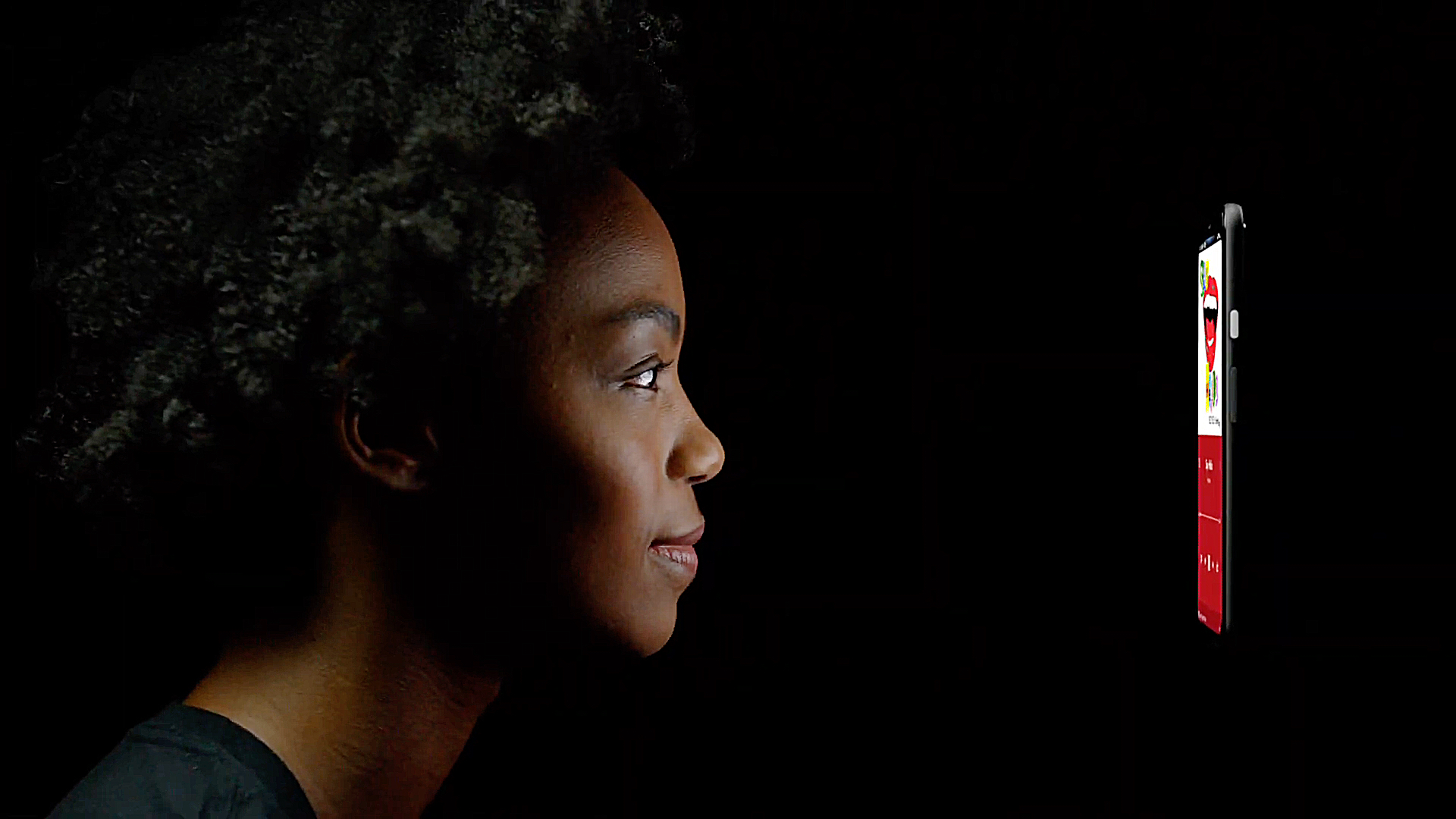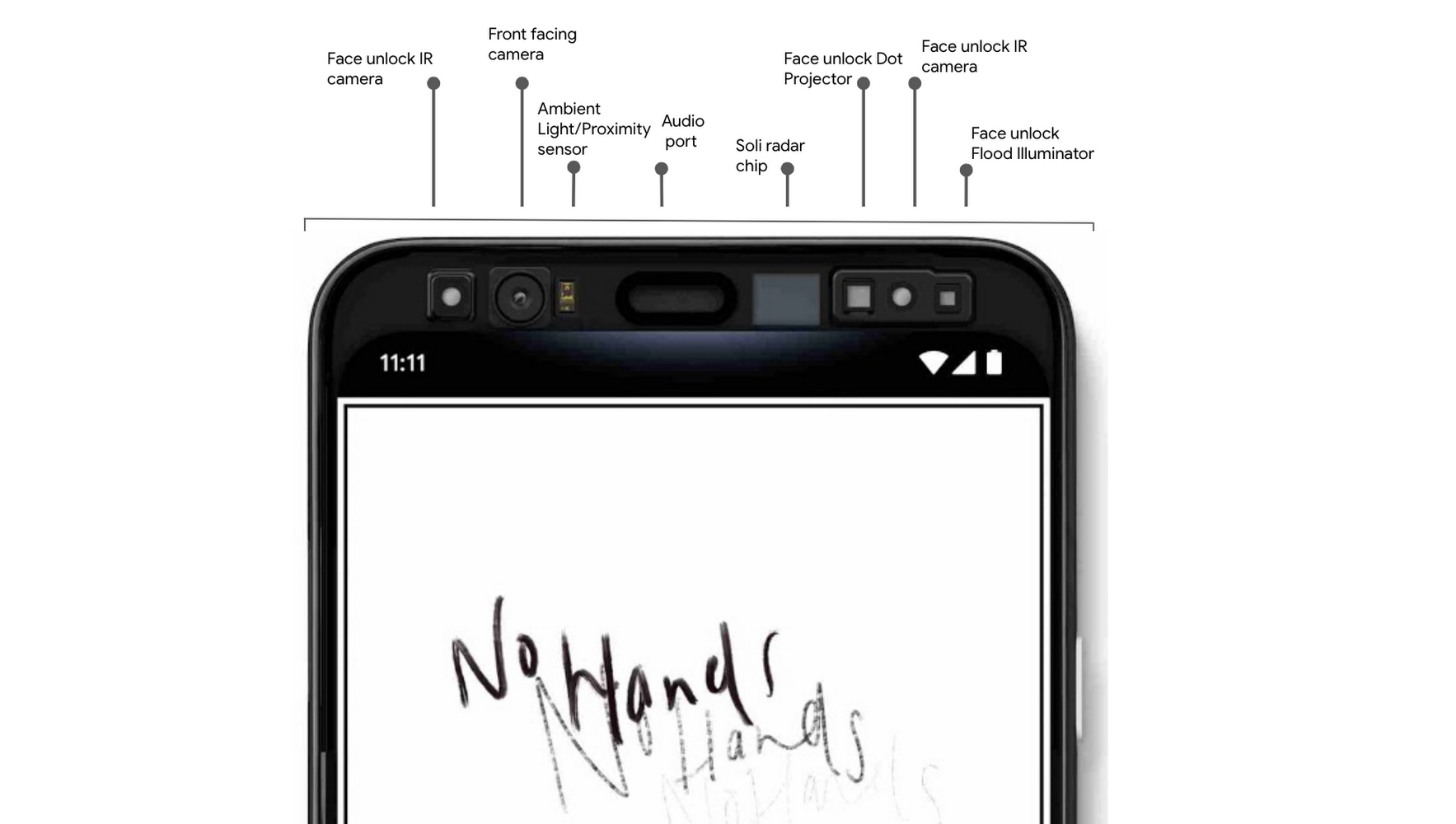Pixel 4: Google baits Apple iPhone as it reveals a key new feature
Face ID has some competition


Get all the latest news, reviews, deals and buying guides on gorgeous tech, home and active products from the T3 experts
You are now subscribed
Your newsletter sign-up was successful
Google is so excited about its forthcoming Pixel 4 series that it can't even wait until its hardware event in October to reveal the final design and one of the flagship new features.
In a YouTube video and blog post posted last night, the Mountain View-based company confirmed that its Pixel 3 and Pixel 3 XL successors will not use a fingerprint scanner, but will instead use a new face unlock technology – similar to the Face ID system that debuted on the Apple iPhone X and subsequently rolled-out to the iPhone XS, XS Max, and iPhone XR.
It has been almost two years since Apple introduced Face ID, which can be used to unlock the phone and authenticate contactless payments via Apple Pay, but no Android manufacturers have been able to replicate it with the same level of security.
Samsung does offer face unlock – as does OnePlus – but neither allows smartphone owners to use this method to authenticate payments, or unlock secure apps such as for banking on the device because it's not secure enough.
Hints at the forthcoming Face ID rival were previously unearthed in the Android Q beta operating system. And rumours went into overdrive earlier this year when Google tweeted an image of the back of the Pixel 4, fans were quick to spot the rear-mounted fingerprint scanner found on its predecessor has been ditched.

According to the blog post, Google confirms that its Pixel 4 face unlock feature uses a number of sensors to identify your face, including depth, infrared, and RGB.
Like the iPhone X before it, this should ensure the system works in a variety of lighting conditions – so the handset doesn't have to blind you with a flash before it can verify your features. Google takes a friendly swipe at Apple in the blog post, too.
Get all the latest news, reviews, deals and buying guides on gorgeous tech, home and active products from the T3 experts
It says: "Other phones require you to lift the device all the way up, pose in a certain way, wait for it to unlock, and then swipe to get to the homescreen. Pixel 4 does all of that in a much more streamlined way."
According to Google, Pixel 4 can preemptively activate the sensors as you reach for the handset to speed-up the unlock.
"If the face unlock sensors and algorithms recognise you, the phone will open as you pick it up, all in one motion," it adds. "Better yet, face unlock works in almost any orientation – even if you're holding it upside down – and you can use it for secure payments and app authentication too."
iPhone models with Face ID have to be held in a portrait orientation to unlock. Although, Google is a little late to the party with this criticism since Apple has already tweaked Face ID to work in any orientation with its new iPad Pro models.
Finally, it's not just face unlock that you'll get with the Pixel 4. The same array of sensors will also be used to enable motion controls for the smartphone.
"Our new Motion Sense features to allow you to skip songs, snooze alarms, and silence phone calls, just by waving your hand. These capabilities are just the start, and just as Pixels get better over time, Motion Sense will evolve as well," Google says.
Elsewhere, rumours point to the Pixel 4 series packing 6GB of RAM, up from 4GB in the previous entry in the Google Pixel range. While that's likely to be a noticeable boost for anyone who upgrades, it's still a far cry from the 12GB of RAM that can be configured inside the OnePlus 7 Pro, for example.
Just like the latest flagship smartphone from OnePlus, the Pixel 4 and Pixel 4 XL will be powered by the top-of-the-line Qualcomm Snapdragon 855 system-on-a-chip and will ship with the latest version of Android OS out of the box, the report continues.
Sources speaking to BGR claim the Google Pixel 4 series will have higher resolution displays – 2280 x 1080 on the Pixel 4, and 3040 x 1440 on the Pixel 4 XL. That's a sizeable increase on the 1080 x 2160 resolution on the Pixel 3, and 1440 x 2960 on the Pixel 3 XL.
The Google Pixel 4 is expected to launch in early October, so we're likely to hear more about the flagship in the coming weeks. Stay tuned.

As a former Staff Writer for T3, Aaron writes about almost anything shiny and techie. When he’s not barking orders at Alexa-powered microwaves or gawping at 5G speed tests, Aaron covers everything from smartphones, tablets and laptops, to speakers, TVs and smart home gadgets. Prior to joining T3, Aaron worked at the Daily Express and and MailOnline.